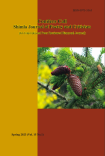The Raj Tales: Colonialism Revisited
Theory today seems to have absolved colonialism of its manifold sins, its recorded atrocities on the colonized. For if one takes a broad view of history, one witnesses civilizations clashing, often with a motive of conquest, sometimes intent on maneuvering themselves into positions of hegemonic control over others. The clash of civilizations that Samuel Huntington talks about is not surely new to history. But when conquest and hegemony both fail, then what occurs, if not overtly, is a covert dialogue through which far reaching changes might occur in both the clashing entities. Ancient history comes up with myriad instances of such covert or tacit geo-cultural occurrences.
If we narrow down this view of history to focus on recent happenings, on what is now familiar to us as postcolonial studies, a discipline patently manufactured in the west and exported to our universities in order to edify the natives, the ‘elite colonials,’ then we could discern for the sake of analysis three explicit phases through which the alien seeks adjustments with the indigenous either through coercion or dialogue. That is, the postcolonial time may be visualised as going through three phases, if we are to adopt D.R.Nagaraj’s reading of it, in the exercise of total recall of the colonial story.Theory today seems to have absolved colonialism of its manifold sins, its recorded atrocities on the colonized. For if one takes a broad view of history, one witnesses civilizations clashing, often with a motive of conquest, sometimes intent on maneuvering themselves into positions of hegemonic control over others. The clash of civilizations that Samuel Huntington talks about is not surely new to history. But when conquest and hegemony both fail, then what occurs, if not overtly, is a covert dialogue through which far reaching changes might occur in both the clashing entities. Ancient history comes up with myriad instances of such covert or tacit geo-cultural occurrences. If we narrow down this view of history to focus on recent happenings, on what is now familiar to us as postcolonial studies, a discipline patently manufactured in the west and exported to our universities in order to edify the natives, the ‘elite colonials,’ then we could discern for the sake of analysis three explicit phases through which the alien seeks adjustments with the indigenous either through coercion or dialogue. That is, the postcolonial time may be visualised as going through three phases, if we are to adopt D.R.Nagaraj’s reading of it, in the exercise of total recall of the colonial story.
TRS Sharma

